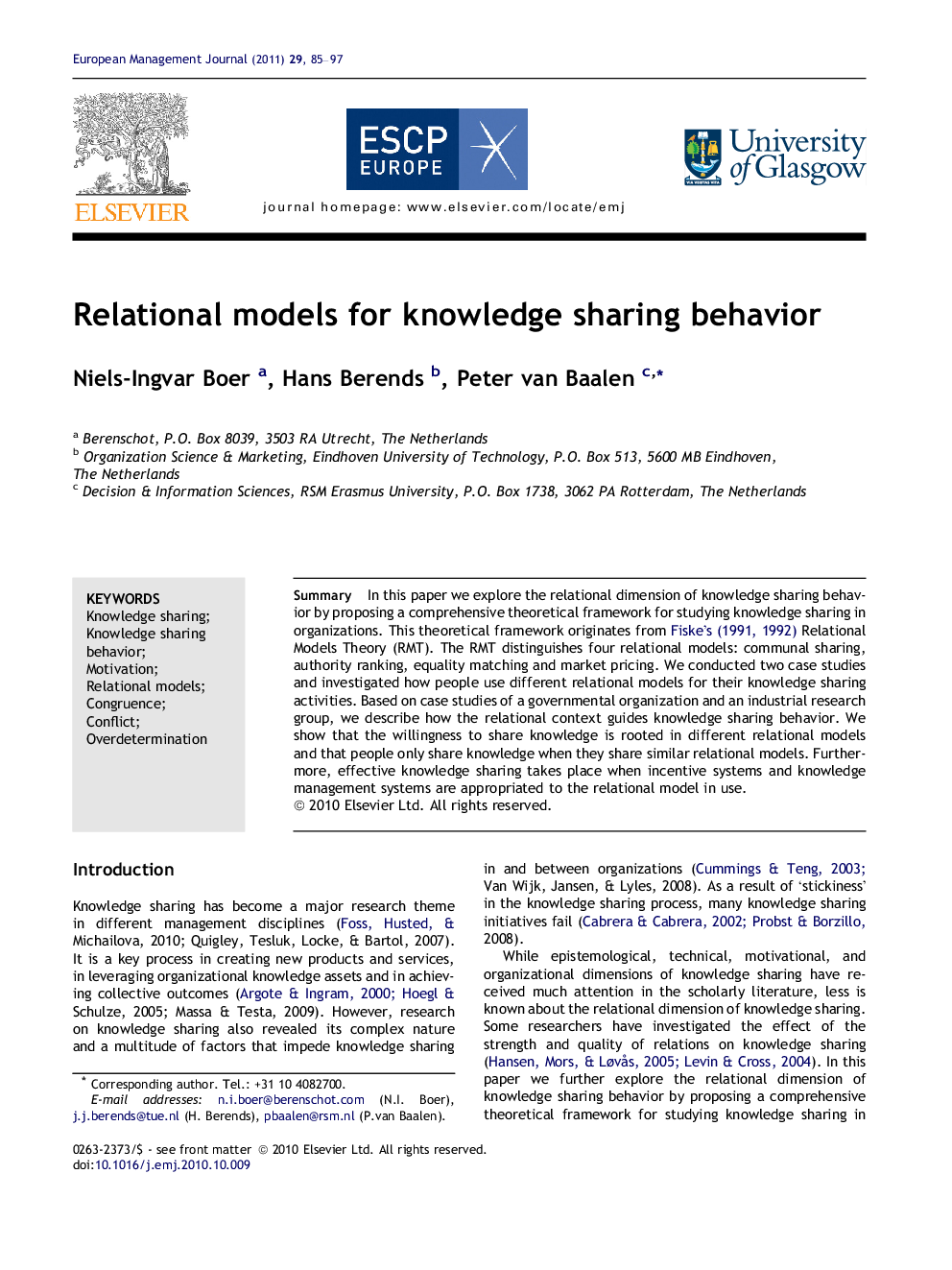| Article ID | Journal | Published Year | Pages | File Type |
|---|---|---|---|---|
| 1015107 | European Management Journal | 2011 | 13 Pages |
SummaryIn this paper we explore the relational dimension of knowledge sharing behavior by proposing a comprehensive theoretical framework for studying knowledge sharing in organizations. This theoretical framework originates from Fiske, 1991 and Fiske, 1992 Relational Models Theory (RMT). The RMT distinguishes four relational models: communal sharing, authority ranking, equality matching and market pricing. We conducted two case studies and investigated how people use different relational models for their knowledge sharing activities. Based on case studies of a governmental organization and an industrial research group, we describe how the relational context guides knowledge sharing behavior. We show that the willingness to share knowledge is rooted in different relational models and that people only share knowledge when they share similar relational models. Furthermore, effective knowledge sharing takes place when incentive systems and knowledge management systems are appropriated to the relational model in use.
